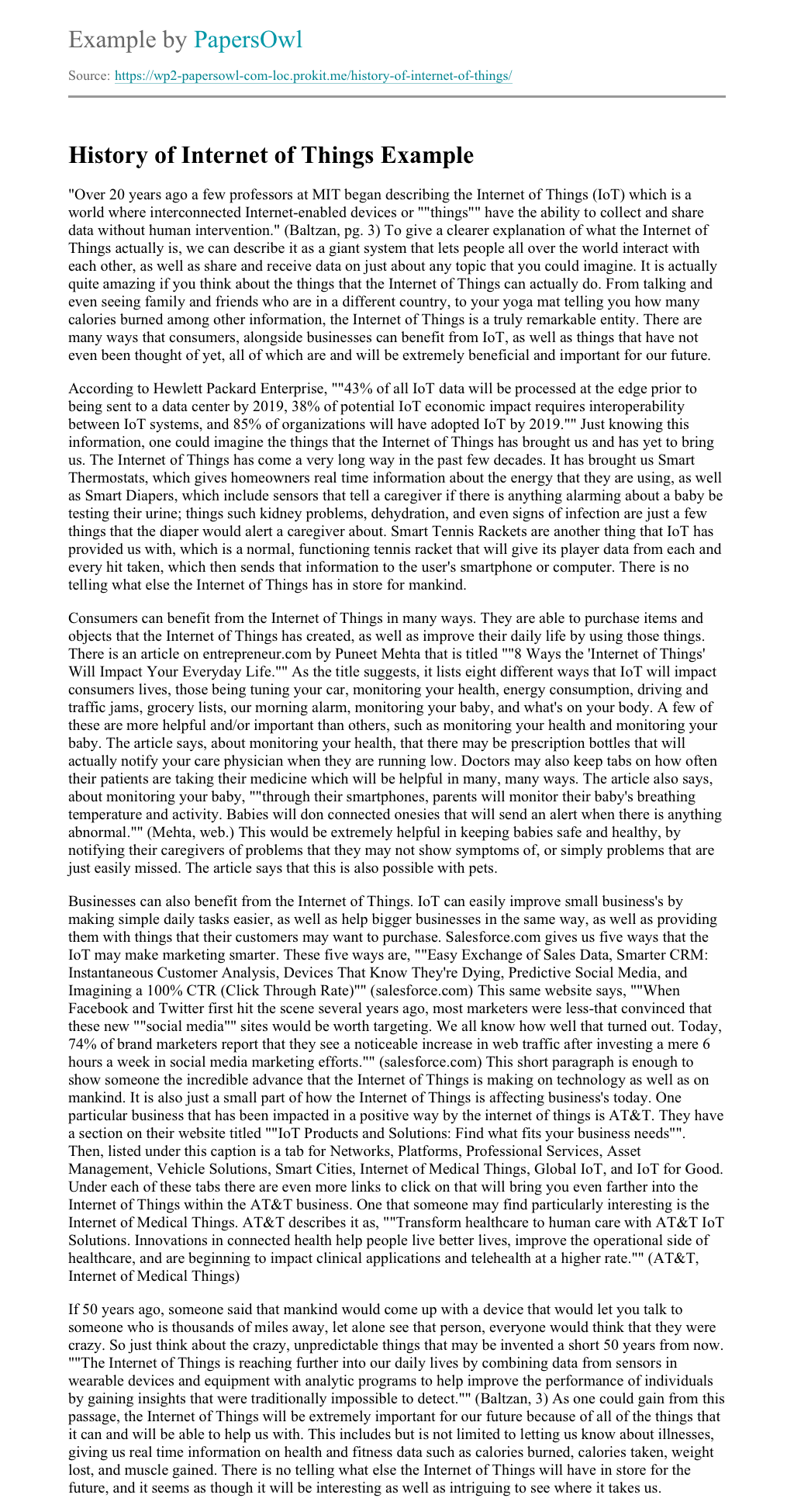Jul 29, · Title: Mahatma Gandhi - a Great Man in History Example essay. Last modified: 26th Jul Introduction: Mahatma Gandhi entered the scene of the Indian freedom struggle in ; with this the freedom struggle took a new turn. Mohandas KaramChand Gandhi was a lawyer who had been working in South Africa Jan 02, · Share. Email. Introduction to Essay Development by Prof_K views. Summary of "A History of the Englis by Sarah Abdussalam views. The origins of the english language by KarlaEssmann views. Elements of essay with its definition by TheUniTutor views. A short history of english literature by St:Mary's College views Aug 04, · Evidently, a typical history essay format requires the writer to provide background on the event or person, examine major influences, and discuss the importance of the forces both then and now. In addition, when preparing to write, it’s helpful to organize the information you need to
19+ History Essay Writing Examples - PDF | Examples
As definitions go, Huxley's is no more or less exact than Francis Bacon's "dispersed meditations," Samuel Johnson's "loose sally of the mind" or Edward Hoagland's "greased pig. Since Montaigne adopted the term "essay" in the 16th century to describe his "attempts" at self-portrayal in prosethis slippery form has resisted any sort of precise, universal definition.
But that won't an attempt to define the term in this brief article. In the broadest sense, the term "essay" can refer to just about any short piece of nonfiction -- an editorial, feature story, critical study, even an excerpt from a book.
However, literary definitions of a genre are usually a bit fussier. One way to start is to draw a distinction between articleswhich are read primarily for the information they contain, and essays, in which the pleasure of reading takes precedence over the information in the text.
Although handy, this loose division points chiefly to kinds of reading rather than to kinds of texts. So here are some other ways that the essay might be defined. Standard definitions often stress the loose structure or apparent shapelessness of the essay.
Johnson, for example, called the essay "an irregular, indigested piece, not a regular and orderly performance, history of the essay. True, the writings of several well-known essayists William Hazlitt and Ralph Waldo Emersonfor instance, after the fashion of Montaigne can be recognized by the casual nature of their explorations -- or history of the essay. Each of these essayists follows certain organizing principles of his own.
Oddly enough, critics haven't paid much attention to the principles of design actually employed by successful essayists. These principles are rarely formal patterns of organizationthat is, the "modes of exposition" found in many composition textbooks. Instead, they might be described as patterns of thought -- progressions of a mind working out an idea. Unfortunately, the customary divisions of the essay into opposing types -- formal and informal, impersonal and familiar -- are also troublesome.
Consider this suspiciously neat dividing line drawn by Michele Richman:. Post-Montaigne, the essay split into two distinct modalities: One remained informal, personal, history of the essay, intimate, relaxed, conversational and often humorous; the other, dogmatic, impersonal, systematic and expository.
The terms used here to qualify the term "essay" are convenient as a kind of critical shorthand, but they're imprecise at best and potentially contradictory. Informal can describe either the shape or the tone of the work -- or both. Personal refers to the stance of the essayist, conversational to the language of the history of the essay, and expository to its content and aim.
When the writings of particular essayists are studied carefully, Richman's "distinct modalities" grow increasingly vague. But as fuzzy as these terms might be, the qualities of shape and personality, form and voice, are clearly integral to an understanding of the essay as an artful literary kind.
Many of the terms used to characterize the essay -- personal, familiar, intimate, subjective, friendly, conversational -- represent efforts to identify the genre's most powerful organizing force: the rhetorical voice or projected character or persona of the essayist, history of the essay. In his study of Charles LambFred Randel observes that the "principal declared allegiance" of the essay is to "the experience of the essayistic voice.
Similarly, at the beginning of "Walden, " Henry David Thoreau reminds the reader that "it is always the first person that is speaking. The terms "voice" and "persona" are often used interchangeably to suggest the rhetorical nature of the essayist himself on the page. At times an author may consciously strike a pose or play a role. He can, as E. White confirms in his preface to "The Essays," "be any sort of person, according to his mood or his subject matter. In "What I Think, What I Am," essayist Edward Hoagland points out that "the artful 'I' of an essay can be as chameleon as history of the essay narrator in history of the essay. Klaus to conclude that the essay is "profoundly fictive":.
It seems to convey the sense of human presence that is indisputably related to its author's deepest sense of self, but that is also a complex illusion of that self -- an enactment of it as if it were both in the process of thought and in the process of sharing the outcome of that history of the essay with others. But to acknowledge the fictional qualities of the essay isn't to deny its special status as nonfiction. A basic aspect of the history of the essay between a writer or a writer's persona and a reader the implied audience is the presumption that what the essayist says is literally true.
The difference between a short story, say, and an autobiographical essay lies less in the narrative structure or the nature of the material than in the narrator's implied contract with the reader about the kind of truth being offered. Under the terms of this contract, the essayist presents experience as it actually occurred -- as it occurred, that is, in the version by the essayist. The narrator of an essay, the editor George Dillon says, "attempts to convince the reader that its model of experience of the world is valid.
In other words, the reader of an essay is called on to join in the making of meaning. And it's up to the reader to decide whether to play along.
Viewed in this way, the drama of an essay might lie in the conflict between the history of the essay of self and world that the reader brings to a text and the conceptions that the essayist tries to arouse.
With these thoughts in mind, the essay might be defined as a short work of nonfiction, often artfully disordered and highly polished, in which an authorial voice invites an implied reader to accept as authentic a certain textual mode of experience. But it's still a greased pig. Sometimes the best way to learn exactly what an essay is -- is to read some great ones. You'll find more than of them in this collection of Classic British and American Essays and Speeches. Share Flipboard Email, history of the essay.
English English Grammar An Introduction to Punctuation Writing. Richard Nordquist. English and Rhetoric Professor. Richard Nordquist is professor emeritus of rhetoric and English at Georgia Southern University and the author of several university-level grammar and composition textbooks, history of the essay.
our editorial process. Cite this Article Format. Nordquist, Richard. The Essay: History and Definition. copy citation. What is a Familiar Essay in Composition? Writers on Writing: The Art of Paragraphing. What Are the Different Types and Characteristics of Essays? What Is a Personal Essay Personal Statement? Rhetorical Analysis Definition and Examples. The Writer's Voice in Literature and Rhetoric.
What Is Colloquial Style or Language? Definition and Examples of Formal Essays. Bad Essay Topics for College Admissions, history of the essay. Point of History of the essay in Grammar and Composition.
My Hero in History complete essay - Best Essay on QUAID E AZAM MUHAMMAD E JINNAH
, time: 14:19History Essay: Topics, Tips and the Outline | HandMadeWriting

The New York Times, whose editorial board could not muster more than one vote out of thirty for Bernie Sanders, has in the past two years published the Project, which was billed as “the most ambitious examination of the legacy of slavery ever undertaken” in an American newspaper; an essay making the case for reparations; and an excerpt adapted from Isabel Wilkerson’s Caste, which compared Aug 04, · Evidently, a typical history essay format requires the writer to provide background on the event or person, examine major influences, and discuss the importance of the forces both then and now. In addition, when preparing to write, it’s helpful to organize the information you need to Jan 02, · Share. Email. Introduction to Essay Development by Prof_K views. Summary of "A History of the Englis by Sarah Abdussalam views. The origins of the english language by KarlaEssmann views. Elements of essay with its definition by TheUniTutor views. A short history of english literature by St:Mary's College views

No comments:
Post a Comment